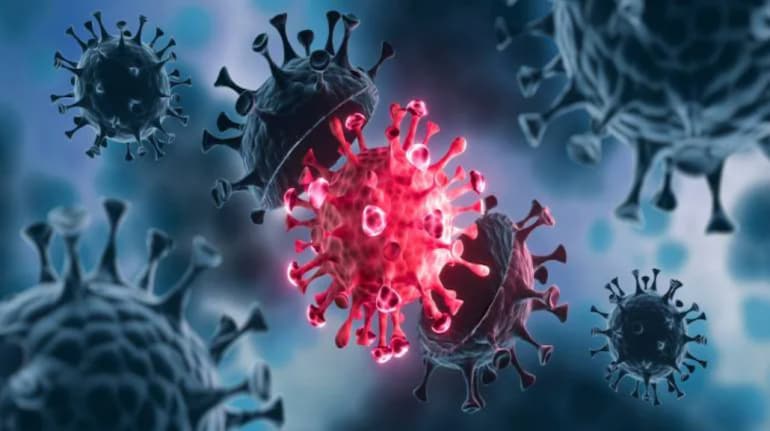



A total of 76 samples of COVID-19's XBB.1.16 variant have been found which might be behind the recent rise of cases in the country, according to INSACOG data.
The variant has been found across Karnataka (30), Maharashtra (29), Puducherry (7) Delhi (5), Telangana (2), Gujarat (1), Himachal Pradesh (1) and Odisha (1), the Indian SARS-CoV-2 Genomics Consortium (INSACOG) data showed.
The XBB 1.16 variant was first found in January when two samples tested positive for the variant while in February a total of 59 samples were found. In March, till now 15 samples of the XBB 1.16 variant have been found, the INSACOG said.
Some experts have attributed the recent rise in COVID-19 cases to this variant. Former AIIMS director Dr Randeep Guleria, who had led the national Covid task force, said the rise in Covid cases seems to be driven by the XBB 1.16 variant while the influenza cases are because of H3N2.
"For both of this, following Covid-appropriate behaviour can help to contain the spread of infection. And also most of the cases are not severe; so there is no need to panic as of now," the chairman, Institute of Internal Medicine, Respiratory and Sleep Medicine, Director-Medical Education at Medanta and former AIIMS director said.
Vipin M Vashishtha, former convenor of Indian Academy of Pediatrics and consultant paediatrician at the Mangla Hospital and Research Centre, Bijnor, said the new XBB.1.16 variant has now been detected in at least 12 countries with highest cases in India followed by the US, Brunei, Singapore and the UK. In India, there is a 281 per cent increase in cases 17 per cent increase in deaths over the past 14 days, he tweeted.
"All eyes should be on India! If XBB.1.16 aka #Arcturus could succeed to wade through the 'sturdy' population immunity of Indians that successfully resisted the onslaught of variants like BA.2.75, BA.5, BQs, XBB.1.5, then whole world must be seriously worried!!" he said in another tweet.
India's single-day tally of COVID-19 cases crossed 800 after 126 days on Saturday, while the number of active cases climbed to 5,389.
Discover the latest Business News, Sensex, and Nifty updates. Obtain Personal Finance insights, tax queries, and expert opinions on Moneycontrol or download the Moneycontrol App to stay updated!
Find the best of Al News in one place, specially curated for you every weekend.
Stay on top of the latest tech trends and biggest startup news.